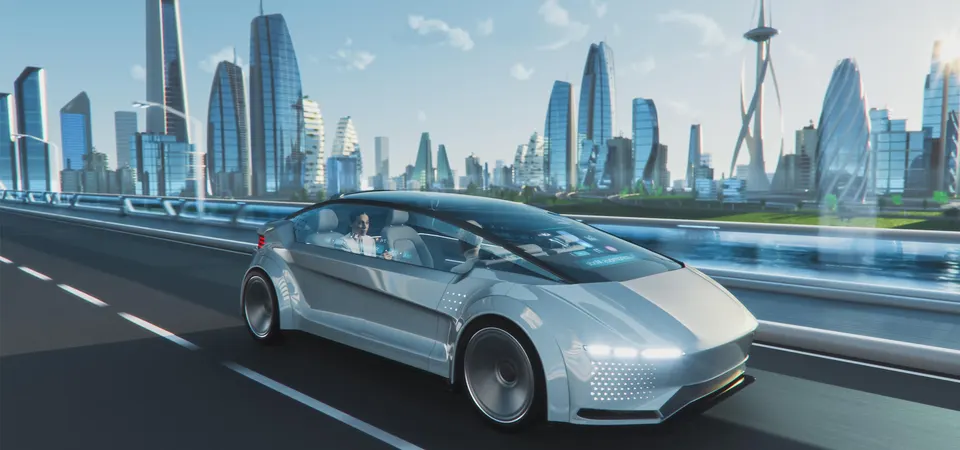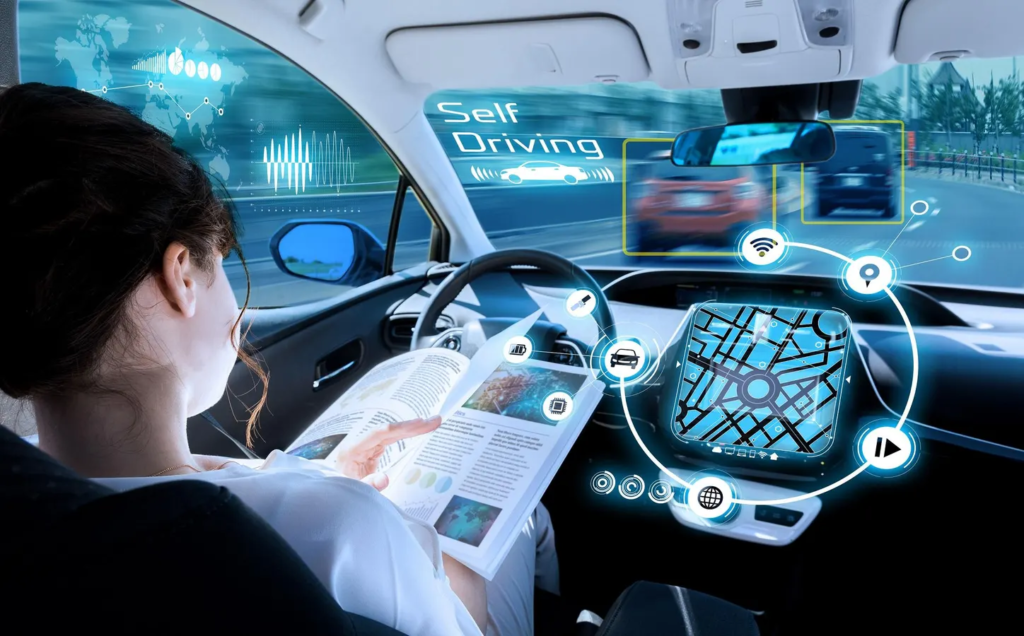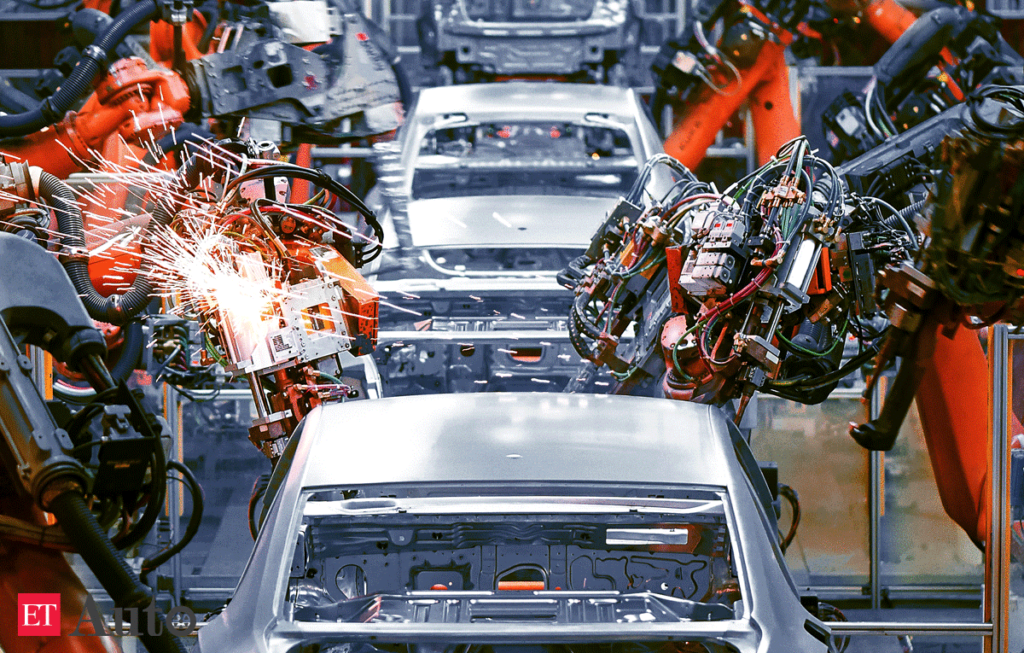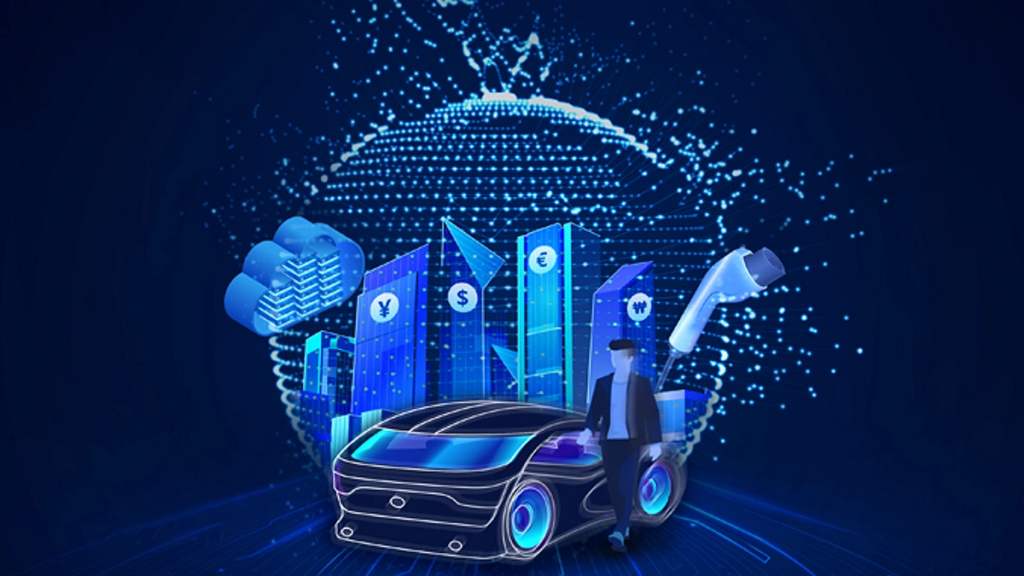Welcome to the future of transportation! Imagine a world where cars drive themselves, navigating through city streets with precision and ease. Autonomous vehicles, or self-driving cars, are no longer just a concept from science fiction movies; they are quickly becoming a reality. In this blog post, we will explore how autonomous vehicles are shaping the way we think about mobility and revolutionizing the automotive industry. Get ready to buckle up and dive into the exciting world of self-driving technology!

Advantages of Self-Driving Cars
Imagine a world where you can relax during your commute without the stress of driving. Self-driving cars offer convenience and efficiency by allowing passengers to use their travel time more productively.
One significant advantage is increased safety on the roads. Autonomous vehicles are equipped with advanced technology that can react faster than human drivers, potentially reducing accidents caused by human error.

Self-driving cars also have the potential to improve traffic flow and reduce congestion. With interconnected systems, these vehicles can communicate with each other to optimize routes and minimize delays.
For individuals with mobility issues or disabilities, autonomous vehicles offer newfound independence and accessibility. They provide a reliable means of transportation for those who may face challenges with traditional driving methods.
Moreover, self-driving cars have the potential to lower fuel consumption and emissions by optimizing driving patterns and reducing idling time. This contributes positively to environmental sustainability efforts in urban areas.
Challenges and Limitations of Autonomous Vehicles
As exciting as the prospect of autonomous vehicles may be, there are certain challenges and limitations that come with this innovative technology. One major obstacle is the issue of liability in case of accidents involving self-driving cars. Determining who is at fault can become complex when human drivers are not actively controlling the vehicle.
Another challenge is the need for extensive testing to ensure the safety and reliability of autonomous vehicles in various driving conditions. Factors like unpredictable weather, road construction, and pedestrian behavior present unique challenges that must be addressed before widespread adoption.
Additionally, cybersecurity concerns have emerged as a critical limitation. With increased connectivity comes an elevated risk of hacking or cyber attacks on autonomous vehicles’ systems, which could compromise passenger safety and privacy.
Moreover, regulatory frameworks around autonomous vehicles are still evolving, creating uncertainty about legal requirements and standards for self-driving cars on public roads. Balancing innovation with necessary regulations poses a significant challenge for policymakers and industry stakeholders alike.
Impact on the Automotive Industry
The rise of autonomous vehicles is revolutionizing the automotive industry in unprecedented ways. With self-driving cars becoming a reality, traditional automakers are adapting to stay competitive in this rapidly evolving landscape. Companies are investing heavily in research and development to incorporate autonomous technology into their vehicles.
This shift is not only reshaping how cars are manufactured but also changing the way people perceive transportation. The focus is shifting towards smart mobility solutions that prioritize efficiency and sustainability. As a result, new business models centered around autonomous driving services are emerging, challenging the traditional concept of car ownership.

Moreover, the integration of artificial intelligence and advanced sensors in self-driving cars is paving the way for safer and more efficient transportation systems. This technological leap has prompted collaborations between automakers, tech companies, and policymakers to establish regulations that support the widespread adoption of autonomous vehicles.
As autonomous vehicle technology continues to advance, it will undoubtedly continue to transform the automotive industry as we know it today.
Safety and Regulations
Safety and regulations are paramount when it comes to autonomous vehicles. As self-driving cars become more prevalent on the roads, ensuring the safety of passengers and other road users is a top priority for manufacturers and policymakers alike.
Regulations governing autonomous vehicles vary from country to country, with some nations embracing this technology more readily than others. These regulations cover aspects such as data privacy, cybersecurity, liability in case of accidents, and the testing procedures that must be undertaken before these vehicles can be deployed commercially.
One of the key challenges in implementing safety measures for autonomous vehicles is establishing clear guidelines for how these cars interact with traditional human-driven vehicles. Ensuring seamless communication between different types of vehicles is crucial to preventing accidents on the road.
As technology continues to advance rapidly in this field, regulators face the ongoing challenge of keeping pace with new developments while also addressing concerns about public safety. Collaborations between industry stakeholders and government bodies will be instrumental in shaping effective regulatory frameworks that promote innovation while prioritizing safety above all else.
Environmental Benefits
Autonomous vehicles are not only revolutionizing the way we travel but also positively impacting the environment. Self-driving cars have the potential to reduce greenhouse gas emissions by optimizing driving routes, reducing congestion, and improving fuel efficiency. By leveraging advanced technologies such as AI and sensors, autonomous vehicles can operate more smoothly and efficiently than traditional vehicles.
Moreover, self-driving cars are expected to promote the adoption of electric vehicles due to their compatibility with sustainable energy sources. This shift towards cleaner transportation options can significantly decrease air pollution levels in urban areas and contribute to overall environmental sustainability.
In addition, autonomous vehicle technology enables car-sharing services and ride-hailing platforms to be more efficient in matching riders with available vehicles. This leads to fewer empty trips on the road, ultimately decreasing traffic congestion and further lowering carbon emissions.
Embracing self-driving cars can play a crucial role in creating a greener future for transportation while simultaneously enhancing our quality of life.
Future Predictions and Possibilities
With the rapid advancements in autonomous vehicle technology, the future holds exciting possibilities. Imagine a world where commuting becomes seamless and stress-free. Self-driving cars could revolutionize urban transportation, reducing traffic congestion and emissions.
In the near future, we might see entire fleets of autonomous vehicles operating efficiently to provide convenient ride-sharing services. This could potentially decrease the need for personal car ownership, leading to reduced parking space requirements in cities.

Moreover, as self-driving technology continues to evolve, there is potential for enhanced accessibility for individuals with mobility challenges or disabilities. Autonomous vehicles may offer newfound independence and freedom to those who previously faced transportation limitations.
The integration of artificial intelligence in self-driving cars opens up avenues for further innovation. From smart city infrastructure to improved logistics systems, the possibilities are endless as we move towards a more connected and sustainable future with autonomous vehicles at the forefront of transportation evolution.
Conclusion
In embracing autonomous vehicles, we are venturing into a new era of transportation that promises safer roads, reduced emissions, and increased efficiency. The technology behind self-driving cars is rapidly evolving, bringing us closer to a future where driverless vehicles will be the norm rather than the exception.
As we navigate the challenges and harness the advantages of autonomous vehicle technology, it becomes evident that this innovation has the potential to revolutionize not only how we travel but also how we live. With continued advancements in autonomy and smart transportation systems, our vision for a more sustainable and connected future is within reach.
The journey towards fully autonomous vehicles may still have obstacles to overcome, but with each milestone achieved, we are paving the way for a transformational shift in mobility. As we look ahead to what lies on the horizon for self-driving cars and their impact on society as a whole, one thing remains clear – autonomous vehicles are shaping the future of transportation in ways previously unimaginable.
Stay tuned for more updates only on QAWire


